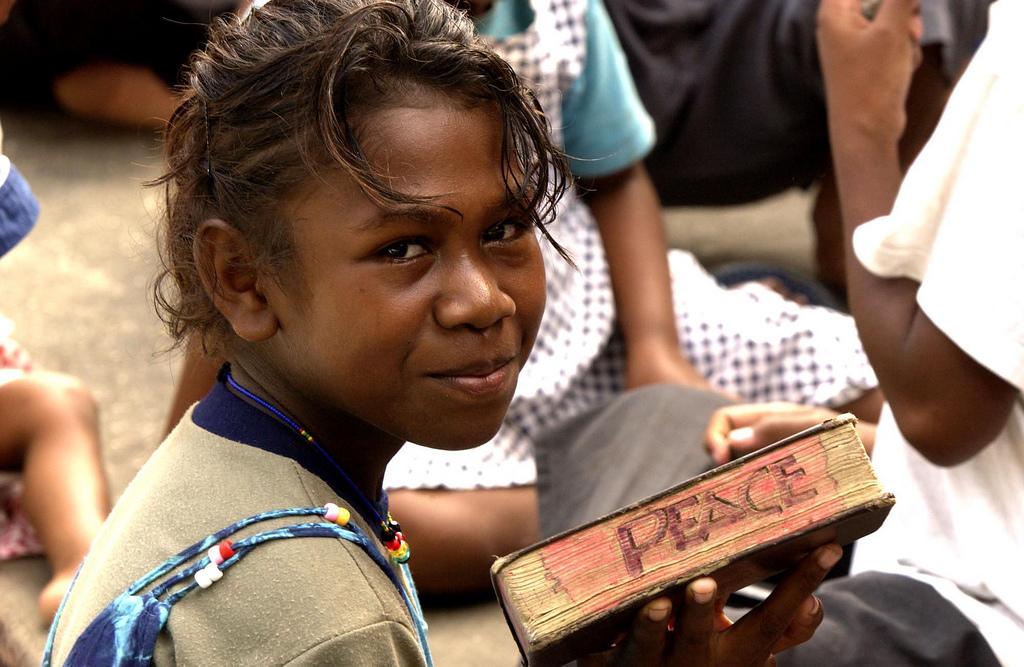 The Regional Assistance Mission to Solomon Islands (RAMSI) and its legacy have been the subject of debate among critical Solomon Islanders and foreign analysts. Many ordinary Solomon Islanders believe that if RAMSI leaves, crises will arise again. The question is how long RAMSI will maintain law and order in the Solomon Islands while the issues that ignited the conflict are left unaddressed. As University of Hawaii academic Tarcisius Tara Kabutaulaka has argued:
The Regional Assistance Mission to Solomon Islands (RAMSI) and its legacy have been the subject of debate among critical Solomon Islanders and foreign analysts. Many ordinary Solomon Islanders believe that if RAMSI leaves, crises will arise again. The question is how long RAMSI will maintain law and order in the Solomon Islands while the issues that ignited the conflict are left unaddressed. As University of Hawaii academic Tarcisius Tara Kabutaulaka has argued:
… foreign intervention, while useful in the short term, does not offer an easy solution to internal problems. It might create a quasi-functioning state that is able to restore order … but without addressing the underlying causes of unrest … the risk is it will create a culture of dependency.
The underlying causes of the conflict in the Solomon Islands are deep-seated traditional issues of land and compensation, and they remain important during post-conflict reconstruction and peace-building. But the process of peace-building as a pre-requisite to post-conflict reconstruction can’t advance if these issues are ignored. The danger is that the longer they remain unresolved, the more likely it is that resentment will build up. In addition, uneven development and grievances relating to powerful local perceptions of relative deprivation due to these underlying causes will remain an obstacle to sustainable peace.
The best way to utilise RAMSI’s services in post-conflict reconstruction is by involving Solomon Islanders in the intervention, particularly when traditional issues are being dealt with. Foreign intervention without local input can’t solve complex traditional issues. The civil component of RAMSI must also take a leading role in post-conflict reconstruction, including the services of civil engineers to build and repair bridges, roads and other infrastructural amenities. However, when this issue was raised by a Solomon Islander parliamentarian (PDF), RAMSI objected that these activities were beyond the scope of the mission.
This demonstrates the inherent dilemma with such interventions—how far external actors can/should go in addressing underlying problems without inducing debilitating levels of dependence. Some would say that RAMSI has already crossed this line (by doing too much, rather than too little), leaving very high levels of local dependency as it contemplates drawdown and exit. This is a very difficult balancing act to achieve and which is shared, in varying degrees, across all substantial post-conflict reconstruction exercises.
For the last thirty years, the Solomon Islands has survived through band-aid development. There have been waves of political instability and economic crisis. If RAMSI is going to have a positive impact on the development of the country, it’s time to engage in the ‘deep intervention’ advocated by Australian academic Tim Anderson (PDF). For the Solomon Islands, deep intervention would include healing the real development wounds of the past and not merely providing a band-aid through the maintenance of law and order (PDF).
The presence of RAMSI in the absence of deep intervention is likely to create a new set of problems that are detrimental to peace-building. In Honiara, many residents are feeling the negative economic pinch of RAMSI’s presence. For instance, house rentals in Honiara are unaffordable for many Solomon Islanders due to the fact that RAMSI has pushed up the rental bracket (PDF).
In view of these unresolved issues, it’s obvious that the long-term sustainability of peace remains a major challenge. Therefore, it appears that a culturally appropriate deep intervention is a pre-requisite to building sustainable peace in the Solomon Islands.
Jack Maebuta is a lecturer in Education at the University of the South Pacific (USP), Solomon Islands Campus and an honorary associate in the School of Humanities, University of New England. Image courtesy of Flickr user Australian Civil-Military Centre.
The article on which this post is based is published in the December special volume of Security Challenges on ‘Security in the Pacific arc’. A workshop will be held on 8 February 2013 at the Australian National University to discuss the special volume. Details and registrations are available here.